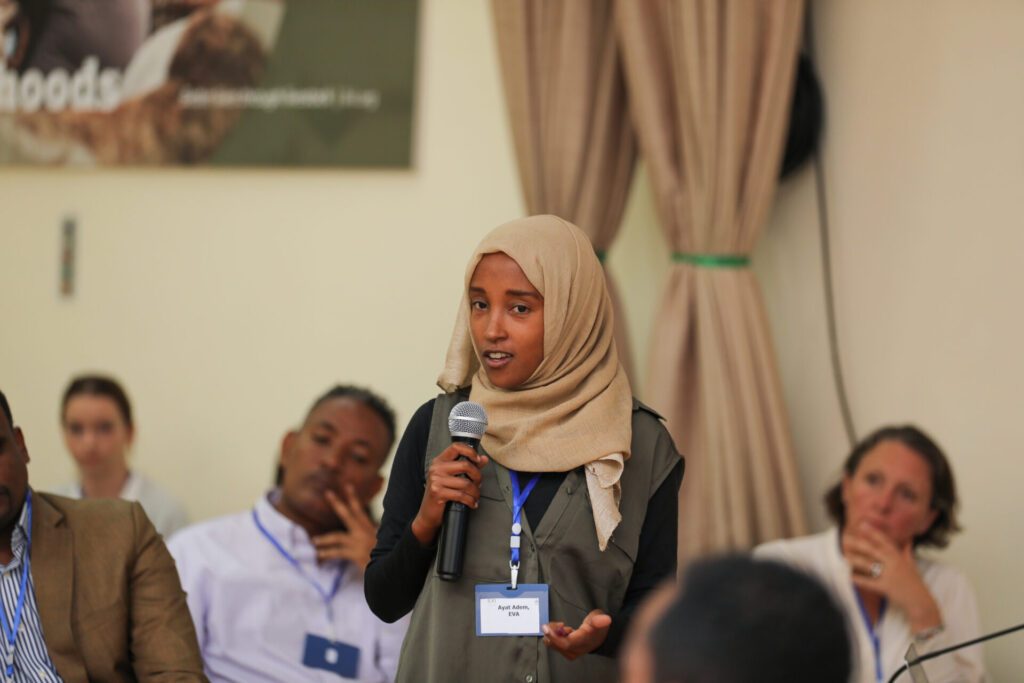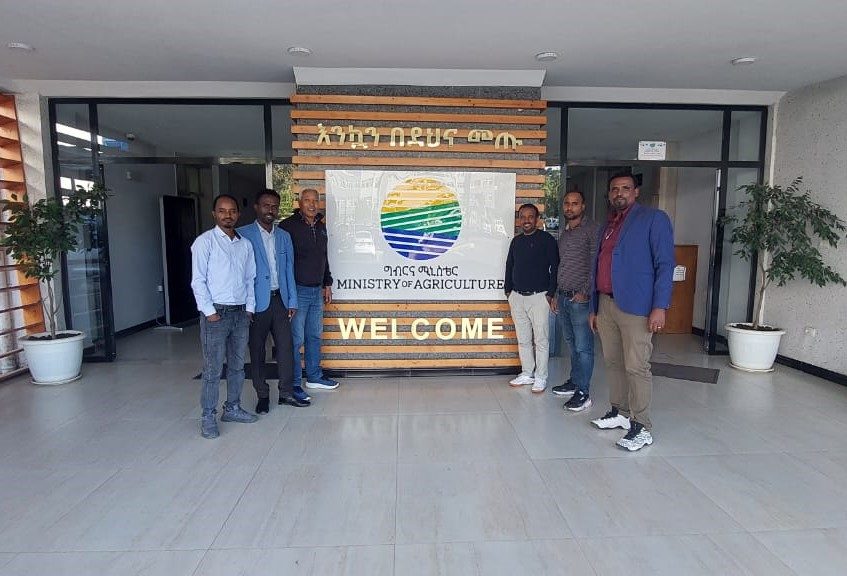GBADs programme: empowering decision-making on livestock health through comprehensive data in Ethiopia

The Global Burden of Animal Diseases (GBADs) is a groundbreaking programme with a mission to help Veterinary Services, and their investors, to decide where to focus the allocation of resources for animal health at the local, national, and global levels.
Spearheaded by the World Organisation for Animal Health (WOAH) and the University of Liverpool and implemented by a consortium of research institutions and international organisations, GBADs measures and quantifies economic loss due to animal health issues at the farm and wider societal levels and provides essential information on where the losses occur, to whom and the causes and risk factors. The ongoing GBADs proof-of-concept case study in Ethiopia is revealing invaluable insights into the significant impact of animal diseases on the nation’s economy and the urgent need for further resources to address this pressing issue.
Ethiopia’s thriving livestock landscape
Ethiopia was identified for the case study due to its significant livestock sector, which plays a critical role in supporting cropping activities, human nutrition, and international trade. Livestock production contributes to nearly 20% of Ethiopian GDP, making it an important component of the country’s economy. However, despite its economic importance, the livestock sector faces the persistent challenge of animal disease burdens that result in substantial losses for both producers and society.
To systematically and robustly measure these losses, Ethiopia signed on to pilot the GBADs programme.
The study aimed to provide essential data to guide the development of evidence-based animal health policies that align with Ethiopia’s national livestock development goals. To accomplish this, established and novel methodologies were employed to estimate the economic losses caused by suboptimal animal health. The study is led by the International Livestock Research Institute (ILRI) and is advised by the National Steering Committee for the case study, chaired by the Ministry of Livestock, including representatives from the private sector such as the Ethiopia Veterinary Association and EthioChicken, and academia.
The country’s active involvement has been instrumental in shaping the programme’s success, and we are proud to contribute to the collective effort of improving animal health on a global scale.
Dr Wubishet Zewde Wakene, Lead Executive of Disease Prevention and Veterinary Public Health, Ethiopia Ministry of Agriculture.
GBADs data: from collection to visualisation
Since the start of the case study in January 2021, the GBADs Ethiopia team has collected data to trial the GBADs methods to obtain information on animal population and their biomass, the animal health loss envelope, the attribution of the envelope and the impact across the economy. This animal health loss envelope represents the monetary losses resulting from suboptimal animal health.

With GBADs, data speaks to you.
Dr Hayet Adem, Board Member, Ethiopia Veterinary Association.
Moreover, the study exposed gender-specific impacts, highlighting that women and girls bear additional burdens due to livestock diseases, including loss of empowerment, well-being, and heightened health risks from zoonotic diseases. While these findings on gender are essential, the lack of quantitative data on these topics calls for more attention and research in future livestock development endeavors.
Ensuring country ownership: building capacity
As the GBADs Ethiopian case study moves forward, the focus expands to encouraging the development of mechanisms to support the adoption and uptake of outputs within end-user institutions, primarily the Ministry of Agriculture and other national research centers. The perceived utility of economic analysis by the Ministry of Agriculture and its close collaboration with the GBADs programme have led to the creation of the first Animal Health Economics Core Group within Veterinary Services in the country, committed to promoting the use of animal health economics to support decision-making at the national level and sub-national level. The GBADs Ethiopia case study team at ILRI has provided mentorship to the Core Group and conducted face-to-face training on animal health economics.
By getting training and support on animal health economics and on data utilisation in addition to integrating GBADs with other livestock management tools and systems, national Veterinary Services will better inform animal health policies and decision-making.

In addition, Veterinary Services are supported in the economics of animal health by the establishment of WOAH Collaborating Centres dedicated to the topic. One was established in 2021 by a consortium of three academic institutes in Europe1 including the University of Liverpool in the United Kingdom, Utrecht University in Netherlands, and the Norwegian Veterinary Institute. This year a centre was established in the Americas2 bringing together Kansas State University and Washington State University in the United States, Universidad Nacional Autonoma De México, University of Brasília and University of São Paulo in Brazil. The establishment of both centres is a strong signal of the interest of GBADs programme to the scientific community aiming at supporting WOAH Members.
1 Consortium of 3 partners: Centre of Excellence for Sustainable Food Systems, Global Burden of Animal Diseases Programme, Institute of Infection, University of Liverpool, UK; Utrecht University, The Netherlands; Norwegian Veterinary Institute – Economics of Animal Health, Norway
2 A consortium of 5 partners: Kansas State University, USA; Universidad Nacional Autonoma De México, Mexico; University of Brasília, Brazil; University of São Paulo, Brazil; & Washington State University, USA
More information
-
Ethiopia case study
-
GBADs: the global burden of animal diseases
